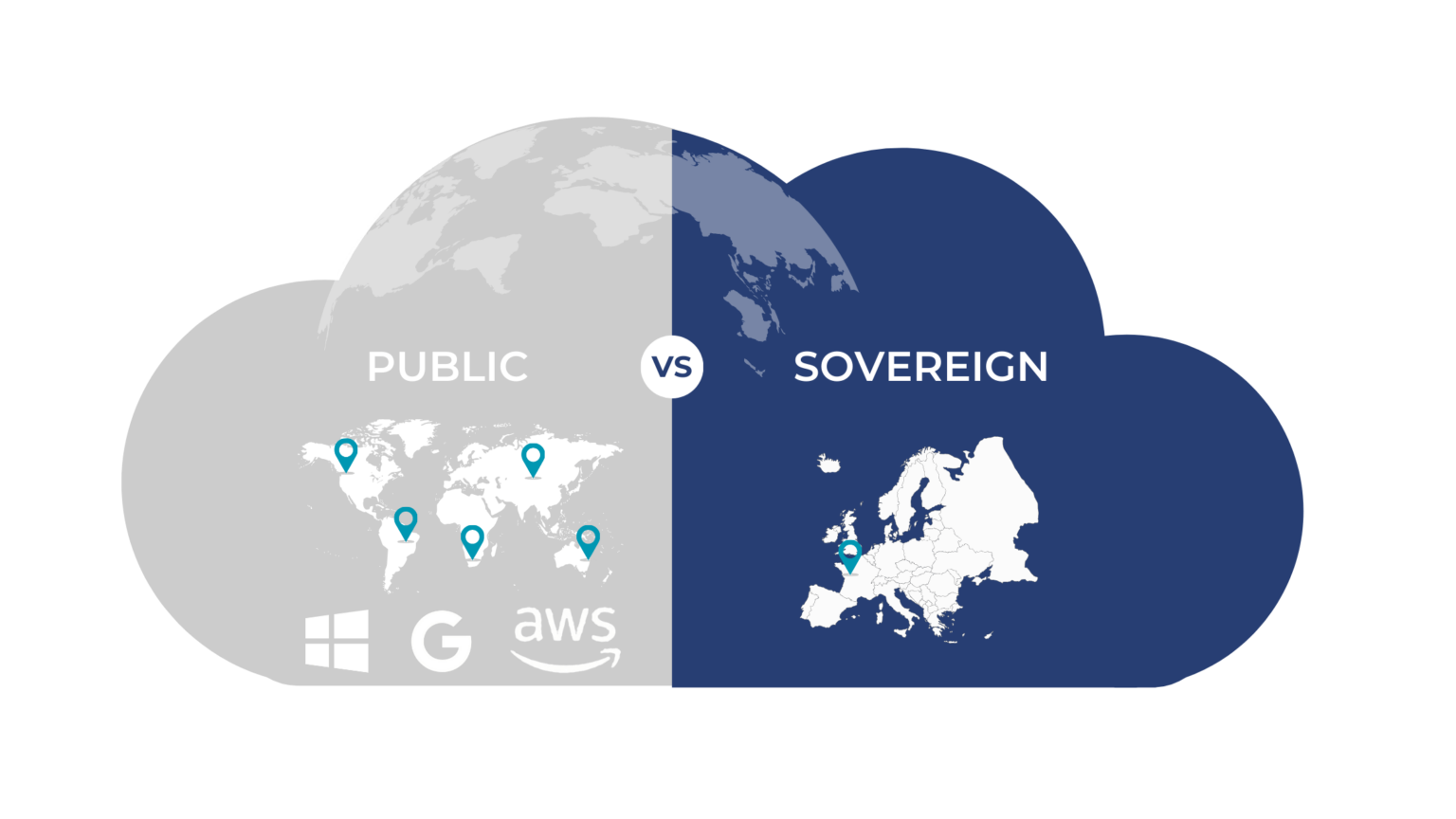As businesses strive for greater control over their data, costs, and technological innovation, the shift from public clouds to sovereign clouds is gaining momentum. While compliance and regulatory concerns are key drivers, the rise of AI applications has introduced a new dimension to this migration: ensuring digital sovereignty while addressing sustainability challenges.
Why the Shift?
Public clouds, dominated by hyperscalers like AWS, Google, and Microsoft, have long been synonymous with scalability and flexibility. However, the advent of generative AI (GenAI) applications has amplified concerns about data sovereignty and security. Organizations are increasingly unwilling to send sensitive data to public cloud providers, particularly for AI workloads, where control over data processing and storage is paramount.
Furthermore, as monthly cloud budgets grow, the economics of public clouds often no longer justify their use. For enterprises spending significant amounts on cloud services, the cost, combined with concerns over vendor lock-in and data governance, make sovereign clouds a compelling alternative.
What is a Sovereign Cloud?
A sovereign cloud ensures compliance with specific legal, compliance, and operational requirements of a country or region. These clouds enable businesses to retain control over where their data is stored and processed, adhering to local jurisdictional laws. In the context of AI, sovereign clouds provide the infrastructure needed to securely develop and deploy AI models, ensuring data remains within defined borders.
AI Driving the Need for Digital Sovereignty
Generative AI applications rely on foundation models (FMs) and large language models (LLMs), which require immense computational resources and vast amounts of data for training and fine-tuning. While cloud technology remains the most practical platform for scaling these applications, organizations are reluctant to use public clouds due to concerns about data security, privacy, and regulatory compliance.
Gartner predicts that by 2027, 70% of enterprises adopting generative AI will cite sustainability and digital sovereignty as the top criteria for selecting between different public cloud GenAI services. This shift underscores the growing importance of sovereign clouds in addressing these concerns.
“Digital sovereignty will drive the need to include cloud providers that can meet the evolving and unique requirements of sovereign operations no matter the region they operate in,” says Sid Nag, Vice President Analyst at Gartner.
Key Benefits of Sovereign Clouds for AI Applications
1. Cost Efficiency for Large Budgets
As organizations deploy AI at scale, the cost of using hyperscaler public clouds becomes prohibitive, especially with high egress fees and unpredictable pricing models. Sovereign clouds offer transparent pricing, eliminating hidden costs and providing better cost-to-performance ratios for businesses with substantial cloud budgets.
2. Data Sovereignty
For AI applications, data sovereignty ensures sensitive datasets used to train or deploy AI models remain within local jurisdictions. This control is critical for compliance with regulations like GDPR and for maintaining trust with stakeholders.
3. Regulatory Compliance
Generative AI poses unique regulatory challenges, particularly regarding the data contained within LLMs and their downstream applications. Sovereign clouds allow businesses to address these challenges by keeping data and AI operations aligned with local and industry-specific regulations.
4. Enhanced Security
With sovereign clouds, organizations can implement custom security measures to protect sensitive AI training data and model outputs. This level of control reduces the risk of data breaches or unauthorized access.
5. Sustainability Alignment
AI workloads are resource-intensive, raising concerns about their environmental impact. Sovereign cloud providers often prioritize energy-efficient operations and transparent reporting of carbon emissions, aligning with organizations’ sustainability goals.
What Gartner Says About the Future of Cloud for AI
According to Gartner, the scale required for AI workloads makes cloud technology the best-suited platform for delivering generative AI applications. However, the report highlights two critical factors—digital sovereignty and sustainability—that will shape enterprise decisions on cloud providers.
- Digital Sovereignty: Enterprises will prioritize cloud providers that guarantee control over where data is stored and where AI operations are executed. Specialty cloud providers focusing on sovereign solutions will gain importance in multi-cloud strategies.
- Sustainability: As sustainability becomes a key consideration, enterprises will seek cloud providers with robust processes to monitor and optimize energy consumption and carbon emissions for AI workloads.
When to Consider Sovereign Hosting for AI
The case for sovereign clouds becomes stronger when:
- AI Initiatives Are a Priority: AI workloads require secure, scalable infrastructure that meets regulatory and sovereignty requirements.
- Cloud Spending Is Significant: Organizations spending more than $100,000 per month on public clouds often achieve better cost efficiency with sovereign solutions.
- Compliance Is Non-Negotiable: Sovereign clouds ensure adherence to local laws, a necessity for heavily regulated industries or regions.
- Sustainability Goals Are Key: Sovereign providers with energy-efficient operations help organizations align their AI strategies with environmental goals.
The Bottom Line
The move from public clouds to sovereign clouds is no longer just about regulatory compliance—it is a strategic necessity driven by the rise of AI applications and sustainability considerations. As Gartner predicts, digital sovereignty will be a defining factor for enterprises adopting generative AI in the coming years. Sovereign clouds provide a secure, cost-efficient, and compliant platform for scaling AI while maintaining control over sensitive data. For organizations navigating this complex landscape, the decision to adopt sovereign hosting may be the key to unlocking the full potential of AI.



